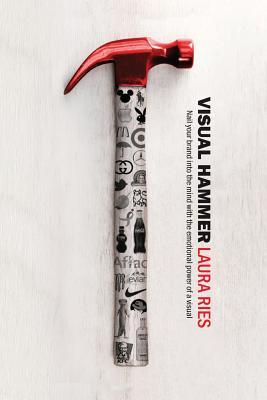Positioning is a totally verbal concept. You build a brand by owning a word in the mind.
Yet the best way into a mind is not with words at all. The best way into a mind is with visuals.
But not any visual. You need a "visual hammer" that hammers a verbal nail. The Marlboro cowboy. Coca-Cola's contour bottle. Corona's lime.
The cowboy hammers "masculinity." The contour bottle hammers "authenticity." The lime hammers "genuine Mexican beer."
A trademark is not a visual hammer. Almost every brand has a trademark, but fewer than one out of a hundred brands have a visual hammer. A trademark is a rebus which communicates nothing except the name of the brand.
A visual hammer, on the other hand, communicates the essence of the brand.
Visual Hammer is the first book to document the superiority of the "hammer and nail" approach to branding. Some examples.
The pink ribbon that made Susan G. Komen for the Cure the largest nonprofit foundation to fight breast cancer.
The Aflac duck that increased Aflac's name recognition from 12 percent to 94 percent.
The green jacket which made the Masters the most-prestigious golf tournament.
The polo player which made Ralph Lauren the largest-selling high-end clothing brand.
The bottle which made Absolut the largest-selling high-end vodka.
The watchband which made Rolex the largest-selling luxury watch.
The red soles which made Christian Louboutin the leading luxury-shoe brand.
The chalice which made Stella Artois the fifth largest-selling imported beer.
Colonel Sanders who made KFC the world's largest chicken chain.
Why are marketing plans usually nothing but words when the best way into a mind is with the emotional power of a visual?
After reading Visual Hammer, you might want to tear up your current marketing plan and start fresh.
